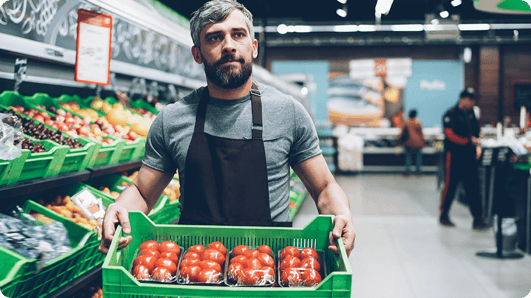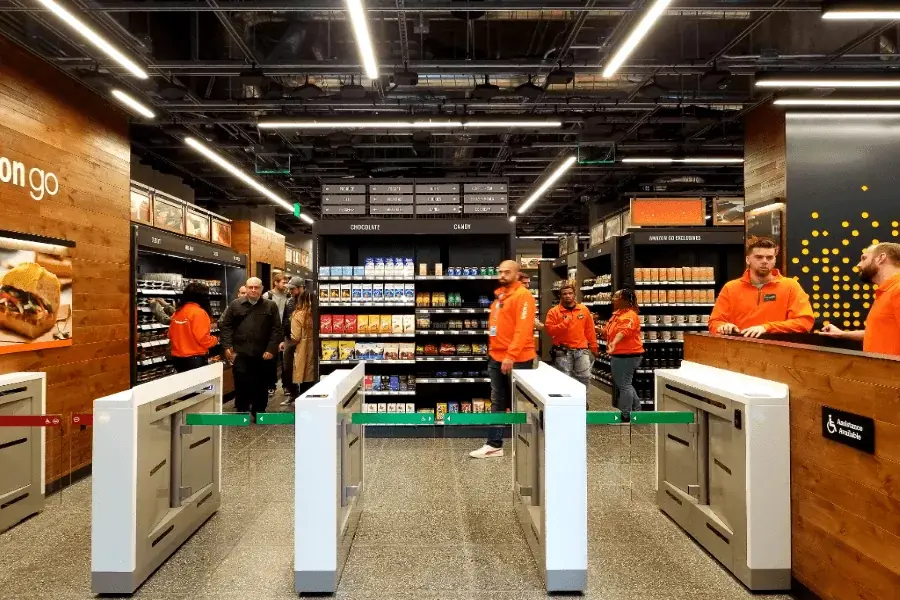Revolutionizing Retail: Top IoT Use Cases Transforming the Industry
Technological advancements are continuing to transform the retail industry, with the Internet of Things (IoT) leading the charge. Research shows that...
Have you ever done your food shopping on a Sunday afternoon, only to find that you’re stuck at the back of a seemingly endless queue that leads to just two open checkouts?
This isn’t just a tedious experience for the customer: it’s a big problem for supermarkets trying to compete for repeat visits and customer loyalty too.
 But there are technological solutions on the market – smart cameras have come a long way and, combined with the humble smart phone, could be the answer to those long queues.
But there are technological solutions on the market – smart cameras have come a long way and, combined with the humble smart phone, could be the answer to those long queues.
Much attention is given to customer-facing tech like click and collect and smart shopping, but there are huge opportunities on the operational side of retail to optimise fundamental parts of the in-store customer journey.
Times are tough for retailers in 2023. Sales are falling as customers tighten their purse strings, and price competition means that supermarkets are squeezing their margins down to keep customers from moving to stores that offer better value for money.
.png?width=290&height=218&name=supermarket-trolleys%20(1).png)
Price, and the customer experience, are the two things that supermarkets can differentiate themselves on, which means coming up with new ways to solve old problems like long queues.
Long waits can put people off coming to your store, or even reduce sales, as people hoping to get home as fast as possible rush to the checkouts in anticipation of the queue.
If you work in retail, you know that no one wants long queues, but it can be difficult to intervene if staff are dispersed around the store and can’t see the tills.
Even if they can, staff might not want to leave their important tasks to help if they aren’t confident that’s the ‘MOST IMPORTANT THING’ they need to be doing.

But with the right data and tools, it’s possible to monitor queues, alert staff members and intervene quickly.
You may already be familiar with the idea of smart cameras, but they are not just for blue sky projects.
There are many uses for smart cameras, including identifying trip hazards and theft, but they can also be used to track crowding and monitor the length of queues.
It’s critical to your return on investment that the cameras don’t just sit idly collecting data: you need a mechanism for driving action.
That mechanism is a platform that’s able to respond to the data, automatically communicating the need for intervention. 
You’ll need some kind of works management app for your employees to use on their smart phones (ahem), which can push actions out to them in response to the data from the cameras.
That way, staff can be anywhere in the store and know that they need to help by redirecting some of the queue-ees, jumping on a checkout or directing customers to self-checkouts.
Just to be clear, this data is completely anonymised, sorry Big Brother.
So, the camera has identified the queue, your platform of choice has pushed out the required action to employee’s smart phones, and the cavalry has come to open more checkouts – but has it worked?
Ideally, your works management app lets you capture the intervention, so your team can update you on how quickly they resolved the queue, what they did and whether it helped.
This closes the feedback loop that started when the camera first detected the issue, and finished when your team updated the system after they intervened.
One study on effective queue management systems suggested that queueing times can be reduced by up to 80% in many cases.
That’s quite a jump.
Your customers will certainly remember gliding through the checkouts with their Sunday shopping: a final, memorable and positive point in their journey through your store.
In the longer term, you’ll be able to spot patterns in queue times, crowding and interventions that will give you critical insight into how to best use your teams.
You’ll be ahead of the queueing before it even happens.

Retailers are always looking at how they stand out from their competitors, and one way they can is by embracing technological solutions that help to make the customer experience seamless.
Digitalisation doesn’t have to be done all in one terrifying go either, start by thinking about individual use cases and their implementation first (with a solution that’s flexible enough to expand into other processes), and see the benefits first hand.

Technological advancements are continuing to transform the retail industry, with the Internet of Things (IoT) leading the charge. Research shows that...
Safe & legal logbooks are the bedrock of any compliance regime and are filled out for hundreds of specific purposes by most employees on a daily...

In the business environment, decisions cannot be made without sufficient data and information. This requires organisations to capture information...